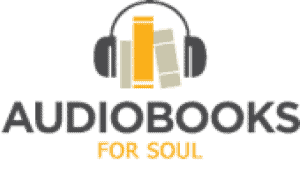The Story of Human Language Audiobook: Weaving Tongues Across Time
As the Texas sun beat down outside my window, I queued up The Story of Human Language audiobook, eager to sink into a world not of rocket ships or noir mysteries, but the tapestry from which every story springs – language itself. From the first syllables uttered by John McWhorter, who serves both as author and narrator for this Great Courses epic, I felt the thrill of standing at a vast crossroads: one path trailing back 150,000 years through ancestral echoes; another splintering forward into 6,000 linguistic tributaries. I settled in with that mix of anticipation and reverence reserved for rare narrative undertakings – knowing that what awaited wasn’t just a chronicle of words but an excavation into how humanity thinks, dreams, remembers.
What strikes immediately is McWhorter’s gift for making this scholarly journey feel like a fireside chat peppered with anecdote and gentle humor. His voice brims with genuine wonder; each lecture radiates a contagious passion akin to watching Carl Sagan demystify the cosmos or David Attenborough reveal hidden animal kingdoms. But here it is language itself under his lens – its science and poetry intertwined. As someone forever dissecting dialogue and plotting arcs as both writer and reader (or listener), I found myself enthralled by his nuanced approach: linguistics presented not as sterile mechanics but living, breathing evidence of our common humanity.
McWhorter’s creative finesse becomes especially apparent when he teases apart thorny questions: Why does English lack gender while Spanish clings to it? How did dialects blossom from single tongues? There’s speculation here – you can sense him inviting us behind the curtain where scholars argue over proto-languages or chase genetic clues tied to speech itself. It feels almost as if McWhorter is letting listeners glimpse his own fascination born perhaps out of childhood curiosity about voices around dinner tables or cosmopolitan city streets. At moments he dwells on topics like creole languages or sign languages for the deaf with such warmth that one suspects personal stakes – maybe memories shaped by encounters across cultures.
Of course, no exploration would be complete without considering how well all this translates in audiobook form. Here’s where McWhorter shines doubly bright: his delivery is polished yet conversational; technical concepts land softly thanks to clear analogies (think “languages are rivers carving new paths”) and dashes of wit (“Grammar isn’t prison bars – it’s scaffolding for thought!”). While some Great Courses productions err on dry recitation, this audiobook pulses with energy befitting live storytelling. Even complex segments about grammatical evolution or language extinction retain their pulse because McWhorter keeps returning us to lived experience: migration patterns mirroring family sagas; dying dialects conjuring images of fading photo albums.
Emotionally speaking, several moments caught me off-guard in their resonance. When he discussed how languages die out quietly after centuries spent shaping identity – sometimes surviving only in lullabies or lone words carried by descendants – I found myself reflecting on stories left untold in my own heritage (how many Texan tales vanished along with indigenous phrases?). Later lectures examining artificial languages sparked excitement reminiscent of early sci-fi discovery; suddenly Esperanto became less novelty than testament to human hopefulness.
Throughout these eighteen hours plus change, overarching messages ring clear without being heavy-handed: That difference does not equal deficiency; that “correct” speech depends more on history than hierarchy; that preserving linguistic diversity isn’t mere nostalgia but cultural necessity. By book’s end I felt subtly transformed – attuned anew to nuances within casual conversations at Austin coffee shops or even among friends’ code-switches mid-sentence.
For those searching not just for facts but insight into what binds people together across continents and millennia, The Story of Human Language audiobook delivers profound reward layered beneath accessible storytelling. It renders our species’ greatest invention vivid again – reminding us why writers labor over sentences and why readers crave new worlds spun from old roots.
If you’re curious to embark on your own auditory exploration – one rich in revelations yet full of empathy – you’ll find The Story of Human Language available freely at Audiobooks4soul.com for easy download anytime inspiration strikes.
Looking forward to our next foray into storyscapes together,
Happy listening,
Stephen










